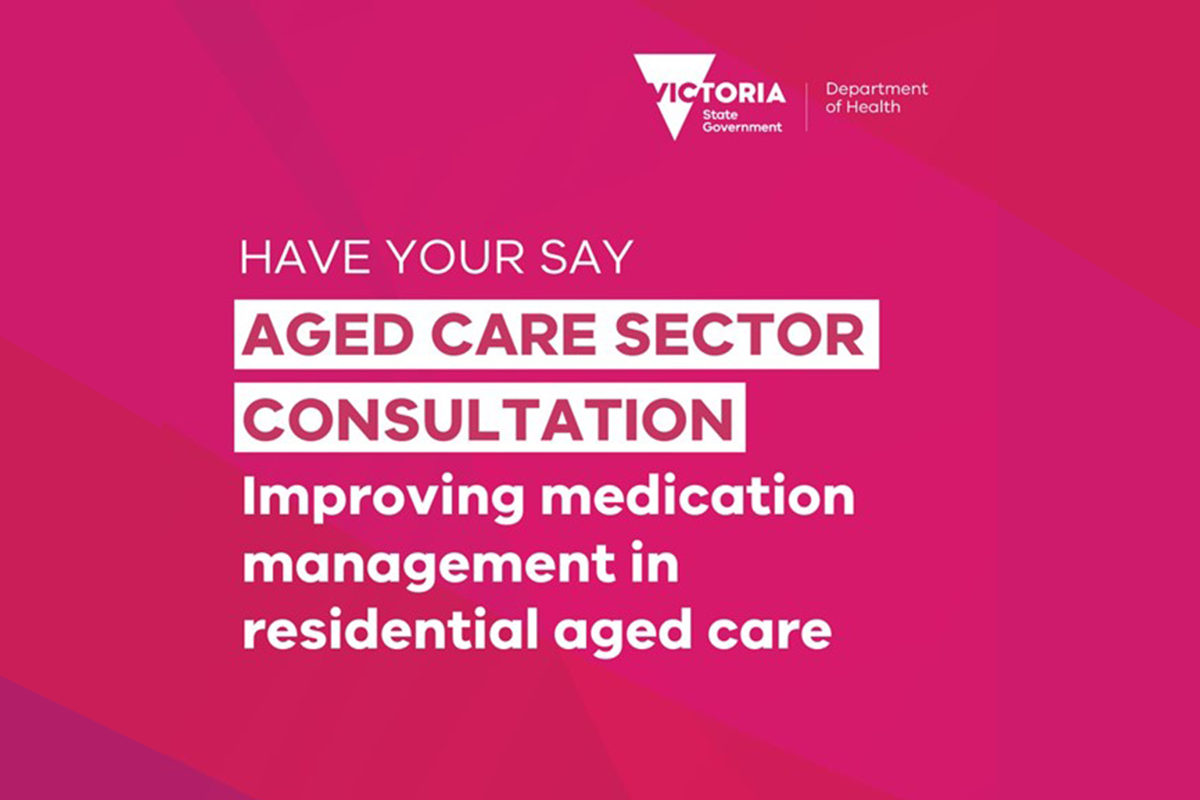
Members who work in residential aged care may have recently received a consultation paper from the Victorian Department of Health regarding medication administration. The Branch strongly encourages you to participate in this consultation. We are also calling on other clinical areas like ED, and Residential In Reach, to bring your perspective and participate.
The purpose of the consultation is to gather the view of relevant stakeholders who have experience caring for residents, including those who need to be transferred to acute hospital due to issues arising out of medication administration in private aged care.
Examples include: overdosage of routine medications leading to organ failure, inadequate pain management for palliative residents, falls relating to inappropriate management of cardiac or other medications.
This review will consider what opportunities the government has to improve medication management and administration practices in residential aged care, consistent with the recommendations of the Aged Care Royal Commission.
Background
Increasingly, aged care residents are frailer and have more complex needs. Their dependency on pharmacological treatments are likewise becoming more intricate: research in 2017 revealed that nearly two thirds of residents in Australian aged care facilities regularly take nine or more medications, increasing their risk of adverse drug events – including, but are not limited to, receiving the wrong medication or the wrong dosage, and not receiving medication on time.
Medication mismanagement in residential aged care is a common complaint to the Aged Care Quality and Safety Commission. Since 2019, it has been the highest or second highest category of complaints nationally.
In the face of these circumstances, and in line with upcoming Commonwealth reforms to the aged care sector, the Andrews Labor Government, as part of its 2018 election commitments to nurses and carers, is considering amendments to the Victorian Drugs Poisons and Controlled Substances Act 1981 (the Act).
Section 36E of the Act requires that the provider of an aged care service – public, not-for-profit or private – must ensure that a registered nurse manages the administration of Schedule 4, Schedule 8 and Schedule 9 medications supplied on prescription to high-level care residents.
It does not specify, however, who should actually administer the resident’s prescribed medicine. Nor does it specify that an RN must be on-site at the facility to manage the administration.
Workforce pressures and the lack of legislative provisions have increased the necessity for RNs to delegate medication administration to personal care workers, for whom no accredited training in medication management exists – only assistance with self-administration CHC33015.
Meanwhile, a 2019 Victorian government review identified ‘indirect supervision’ as the most common form of medication administration supervision, sometimes provided via telephone.
This consultation will consider changes to address these and other concerns, strengthen current requirements, and any additional regulatory controls that may be appropriate.
Why your views matter
Understanding the perspectives and first-hand experiences of workers – as well as residents, families and carers, among others – is essential for meaningful change.
The consultation paper will explore:
- the roles and responsibilities of registered nurses, enrolled nurses (both with and without notation) and personal care workers within a residential aged care facility in administering medications or supporting residents, particularly those with cognitive deficits, who need their medications administered to them.
- whether there are additional safeguards that should be included in Victorian legislation that could better support the administration of medications for residential aged care residents i.e. should the Act include requirements that limit who can administer medications for residents who need medications administered to them.
ANMF supports amending the Act to require Schedules 4, 8 and 9 medications to be administered by a nurse, both RN and EN (without notation), if the resident cannot self-administer, as was the requirement before the Bracks Government made its changes.
Participating in the consultation is voluntary, but ANMF encourages interested members to do so via Engage Victoria. The deadline to provide feedback is 22 August 2022.




